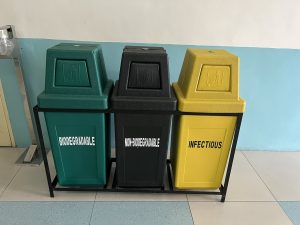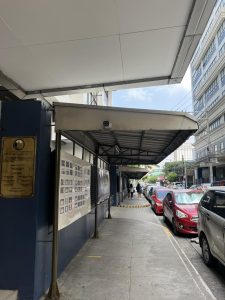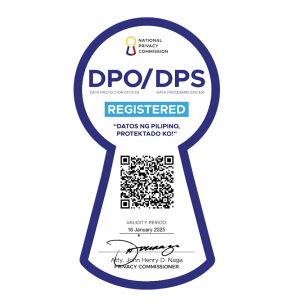Research and Development Office
As National U endeavors to become a leading institution in advancing concepts and paradigms applicable to research and responsive to the development of national and global needs, it sets up a Center for Research to serve as its research arm in doing the following:
- Establishing NU as a center of excellence in research.
- Supporting the further development of research culture.
- Broadening the development of the research capacity of NU across all disciplines and extending the research-based knowledge to the national and international communities.
- Encouraging and empowering faculty members to manage, conduct, disseminate, and report research results.
- Establishing procedures to manage and use research resources effectively, efficiently, and fairly.
- Enhancing the quality of student research activity.
- Encouraging the research-teaching nexus.
- Improving the quality of outputs, including their impact, level of accountability, and timeliness of reporting.
- Providing a structure for continual improvement of research and development.
Contact Information
National University Research and Innovation Office 4th floor Room417, Main Building, 551 M.F. Jhocson Street, Sampaloc, Manila, Philippines Tel. No.: (632) 712-1900 local 1459 (trunk line) (632) 743-7965 (telefax) E-mail address:[email protected] Website: www.national-u.edu.ph
For our first episode of The EntrepreNUr, let’s meet the young, creative, passionate, and talented movers and shakers of tomorrow! These groups of young entrepreneurs presented their innovative products at the CentIE Demo Day and out of 241 teams across NU campuses all over the country, these 16 teams stood out with their outstanding ideas.
Center for Resilient Philippines
The Center for Resilient Philippines (CRP) is one of the three Centers under the Office of the Vice-President for Research and Development (OVPRD) spearheading National University’s disaster risk reduction management initiatives as well as sustainability efforts. The CRP operates under RA 10121 or the Philippine Disaster Reduction and Management Act which promotes the development of capacities in disaster management at the individual, organizational, and institutional levels. CRP primarily exists to contribute in the improvement of the country’s ability to plan for and recover from natural and man-made disasters and disruptive events. It is NU’s contribution in mainstreaming disaster risk reduction in education to achieve an integrated, efficient, and responsive disaster risk management at the university’s level. Moreover, CRP supports the United Nations Sustainable Development Goals (UN SDGs) specifically on targets related to promoting education for sustainable development (SDG #4), constructing resilient infrastructure (SDG #9), building sustainable cities and communities (SDG #11), and promoting climate action solutions (SDG #13), among others.
Vision
The vision of the Center for Resilient Philippines is to strategically place National University in the forefront of the country’s effort in disaster resilience, sustainability, and climate action.
Mission
CRP’s mission is to steer the university and its stakeholders toward a resilient and sustainable culture-making NU an agent of change in disaster resilience and human and environmental sustainability.
Green and Resilient NU
National University, as a sustainable campus, promotes different sustainable programs and eco-friendly operations to reduce the university’s ecological footprint. Different initiatives like waste management and recycling, water and energy conservation and transportation policy are among the top priority of NU.
Solid Waste Management and Recycling Initiatives
National University recognizes and acknowledges its responsibility for proper waste management and disposal. Hence, it is the duty of the National University to assess and implement the proper waste management that will reduce the risks posed to the health and safety of its employees and to anyone else in the campus. Solid waste operations are managed by the Physical Facilities Office.
Waste Segregation
Solid waste in National University is segregated as Biodegradable and Non-biodegradable. Furthermore, Non-biodegradable wastes are categorized as Recyclable wastes (plastics, paper, glass, metal), Toxic wastes (old medicines, paints, chemicals, bulbs, spray cans, fertilizer and pesticide containers, batteries), Soiled (hospital waste such as cloth soiled with blood and other body fluids), and E-wastes (power supply, CDs). Separate receptacles are provided for the different waste categories and segregation is implemented at the source.
Waste Recovery
A Scrap Committee, composed of the personnel from the Security, Physical Facilities, and Purchasing, is assigned in the disposal of scrap materials. All saleable biodegradable materials (such as paper, boxes, etc.) and non-biodegradable materials (such as plastics, cans, steel, metal, etc.) are recovered and sold to the prospective buyers of the scrap
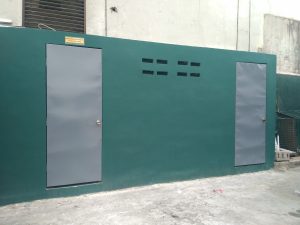
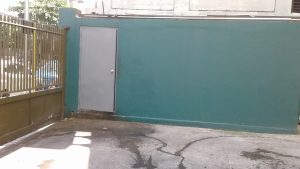
Water Conservation Initiatives
The University promotes water conservation and management. Currently, the University reduces water consumption by using water-efficient fixtures like push-type and sensor-type faucets as well as sensor-type and waterless urinals.
Further, the University plans to have a rainwater catchment system in order to reuse the water collected for gardening and flushing toilets and urinals.
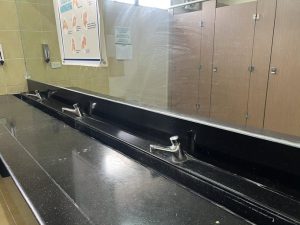
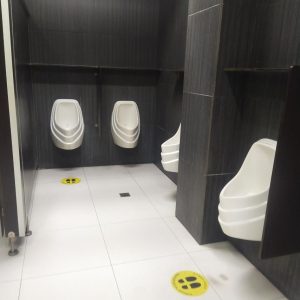
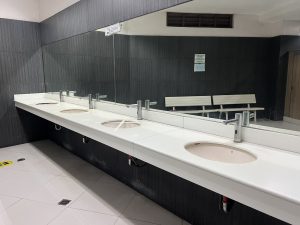
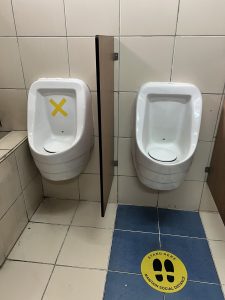
Energy Conservation Initiatives
The University promotes energy conservation and management through the use of natural lighting and ventilation and having scheduled shutdowns of equipment and periodic maintenance. Moreover, the University is working on a specific direction to reduce electricity consumption by using energy-efficient equipment like air curtain, inverter appliances, LED lighting, and sensor-activated equipment.
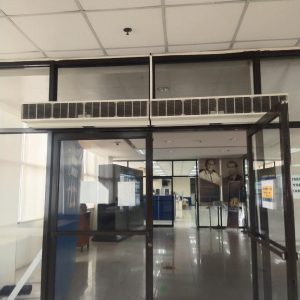
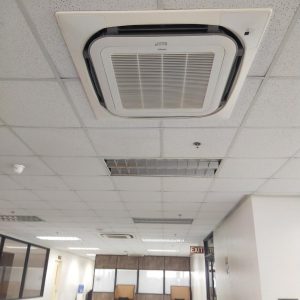
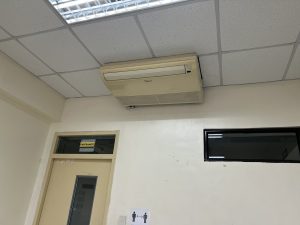
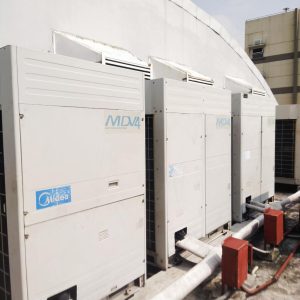
Transportation Policy
-
Official Business Travel
The University maintains vehicles to support the travel needs of all employees, teaching and non-teaching personnel. The travel policy covers local, short land travel to offices or agencies that the employees need to go to for meetings, seminars, conferences, and others.
Below is the process flow for any employee who requires traveling on an official business purpose.
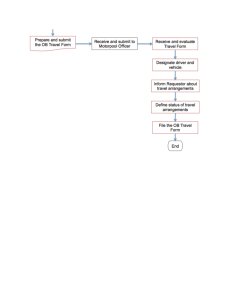

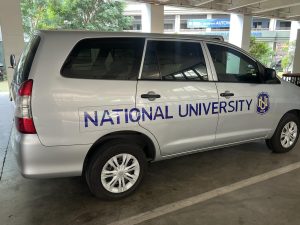
Campus Shuttle Bus
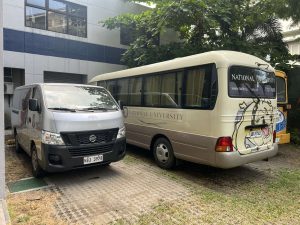
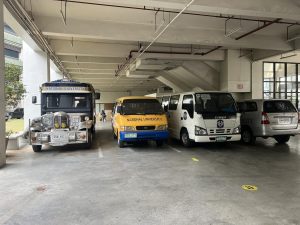
Pedestrian and Walking
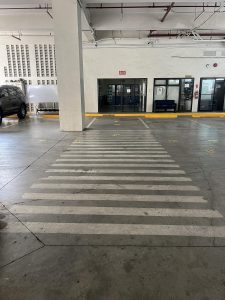
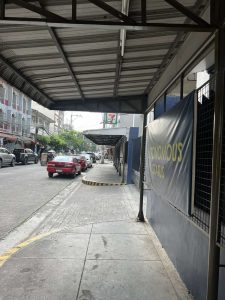
Chemical Waste Handling, Storage and Disposal
The University complies with the requirements of the Department of Environmental and Natural Resources (DENR) in the treatment and disposal of hazardous wastes generated from laboratory and clinical operations. NU has a joint undertaking agreement with Dolomatrix Philippines, Inc., a DENR-registered transporter and treater of toxic and hazardous wastes.
Campus Disaster Risk Reduction Management
-
Campus Security
Access Control. The use of identification (ID) cards of all employees, students, and alumni of National University is mandatory within the campus premises. The security guards have the right to ask for the ID card of the person before he/she will be granted entry to the campus. No ID, No Entry policy is enforced.
A Visitor’s Logbook is available at the reception area at the main gate. All visitors need to surrender their ID and a Visitor’s Pass and Visitor’s Transaction Slip will be provided. The guard will conduct a bag search using a metal detector before allowing entry to and upon exit from the campus. Visitors shall not be granted access inside the campus immediately. They will be ushered in the Reception Area and wait until the person subject of the visit grants the entry of the visitors with the exception of visitors going to the Registrar, Accounting, and Finance offices.
Closed Circuit TV (CCTV) Surveillance System.
Key areas in the campus are covered by CCTV cameras. The monitors are managed and observed daily by security personnel. Any security violation, incidents, and untoward behavior observed in the CCTV are documented and reported immediately for proper action. The retrieval of the CCTV recording cannot be done without any formal request to the Security Office. Only the Security Officer shall be given the full authority to authorize the retrieval and review of the CCTV recordings.
- Emergency Preparedness and Management Plan (e.g. earthquake, fire, flood, etc.)
- Medical Emergencies
- Outbreak of Communicable Disease
Emergency Preparedness and Management Plan
In case of emergencies within the university premises, the Security Office will implement five procedures whenever incident happens:
- Save life and minimize risks
- Isolate the area
- Resolve
- Command and control
- Recovery
Sustainable Development Goals (SDGs) Initiatives
The 17 Sustainable Development Goals (SDGs) are universal calls to action to transform the world by ending poverty, protecting the planet, and ensuring that by 2030 all people enjoy peace and security. The 17 SDGs are integrated in such a way that a change in one area will affect outcomes in others, balancing social, economic and environmental sustainability.
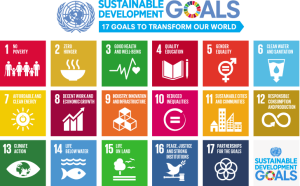
Partnership
- National Resilience Council
- ARISE Philippines
During the Foundation Day celebrations last August 01, the National University Research and Innovation Office launched the Center for Resilient Philippines.
The Center for Resilient Philippines (CRP) is a multi-disciplinary institution committed to improving the country’s ability to plan for and recover from, natural and man-made disasters and disruptive events without compromising long-term prospects for development. The CRP offers an integrated, whole-of-nation, ICT enabled resilience effort that is based on a better understanding of the risk environment and disaster impacts, partnerships and shared responsibility, and adaptive and empowered communities.
With the advent of natural disasters and calamities in the country recently, there is an imperative for academic institutions to take part in the development of resilient communities in the Philippines. CRP is National University’s contribution to its vision of nation building. It is in support of the government’s National Resilience Council, National Disaster Risk Reduction Management, to name a few.
CRP strengthens the core value of National University of resilience in character during difficult times.
CRP supports National University’s Academic, Research and Community Engagement (ARC) framework where academic, research and community engagement endeavors are integrated into one framework. This is where the university’s constituents engage in research and CE activities in their academic undertakings.
CRP is the university’s contribution from an academic institution to UNISDR’s movements in building sustainable communities in support of the initiatives of SM.
As one of the leading academic institution in the field of Information and Communication Technology, National University sees its contribution in the development of digital-based solutions that are useful and meaningful for the community as one of its key areas. The CRP undertakes four program areas which are networking, research, training and consultancy. National University Vice President for Academics and Research and Innovation Office Director Dr. Rachel Edita Roxas invites the NU community to participate in these program areas.
